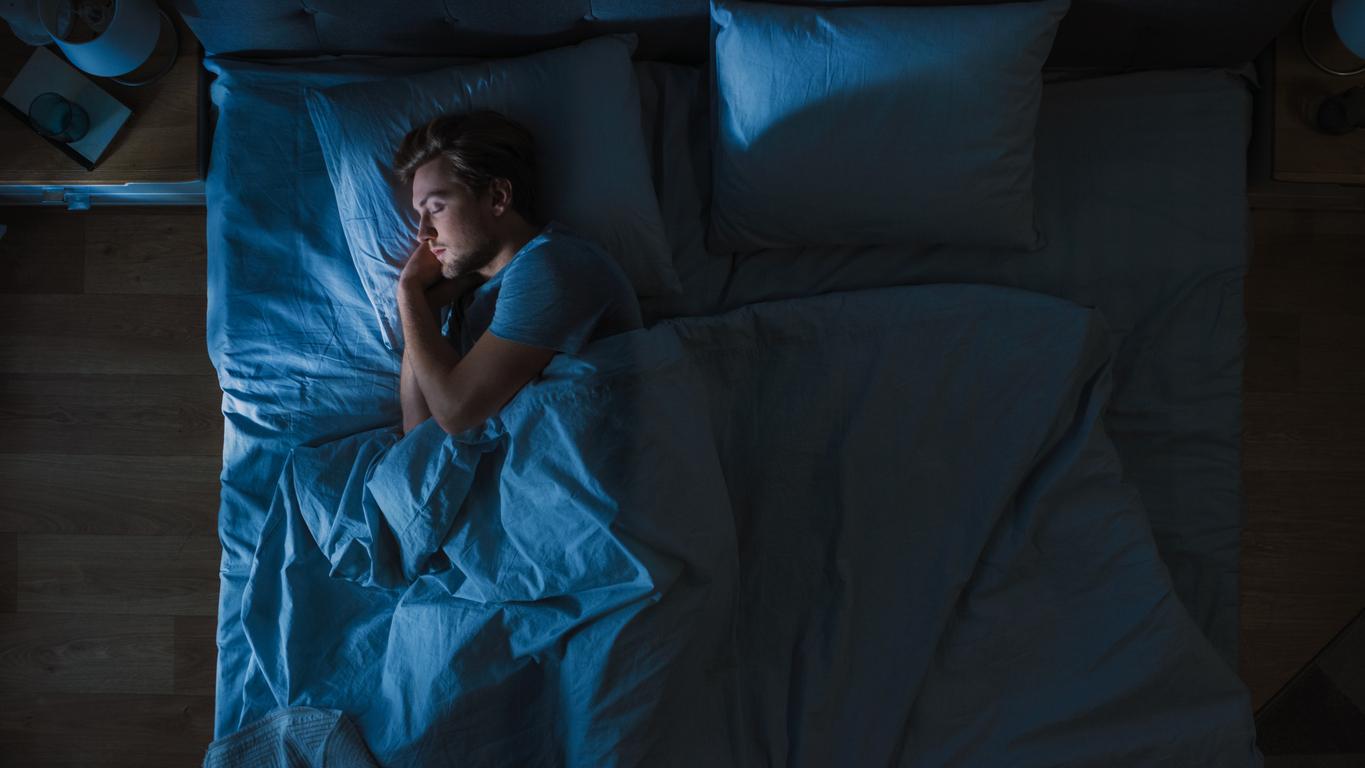Even a slight increase in sleep time can have effects on mental and social well-being by boosting our gratitude and resilience, researchers say.

- A study reveals that just 46 minutes of extra sleep per night is enough to significantly improve mental and social well-being.
- Participants who got more sleep showed increased levels of gratitude, resilience, and life satisfaction, while those with less sleep saw these qualities decrease.
- As sleep also influences prosocial behavior, well-rested people are more altruistic, particularly by making more donations.
It would only take three quarters of an hour more: a new study led by Baylor University (United States) reveals that even a modest increase in sleep time can have profound effects on mental and social well-being.
Until now, research on the subject has mainly focused on the negative effects of lack of sleep, which are legion: difficulty concentrating, cardiovascular risks, anxiety… This study, published in the Journal of Positive Psychologychanges perspective by examining the influence of sleep on the positive aspects of our psychology. The researchers wanted to test whether longer nights could directly increase gratitude and resilience, personality traits generally associated with good mental health.
The effects of a week of modified sleep
In the study, 90 young adults were randomly assigned to three groups: one group who went to bed late, another who went to bed early, and one who stuck to their usual sleep schedule. All were followed for an average work week, monitored using actigraphy, used to assess periods of wakefulness and sleep. The results were clear: participants who benefited from an increase in their sleep time noticed a marked improvement in their resilience, their gratitude and their sense of “flourishing”an English term designating overall fulfillment and life satisfaction.
“46 minutes more sleep each night was enough for participants to feel more satisfied and more resilient”specify the scientists in a press release. On the other hand, those who reduced their sleep, even by about 37 minutes per night, complained of a decrease in these positive feelings, demonstrating the crucial importance of a few minutes more or less of sleep.
The social impact of sleep
Beyond these personal effects, researchers have also found that sleep influences prosocial behaviors. Well-rested people showed more gratitude and a better disposition towards others, thereby increasing their participation in altruistic acts, such as associational donations. A complementary survey, carried out on more than 2,800 adults and published in the journal Sleep Medicineshowed that people who sleep between 7 and 9 hours per night were 7 to 45 percent more likely to donate.
These results highlight the importance of sleep for personal development and social relationships. By increasing the quality of our nights, it could be possible to promote not only individual well-being but also more positive behaviors with others, thus opening promising avenues for public health programs.


















